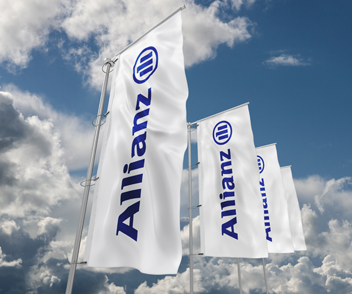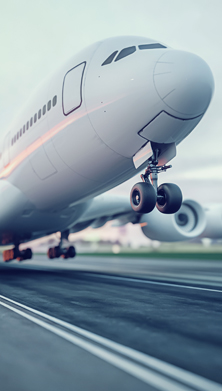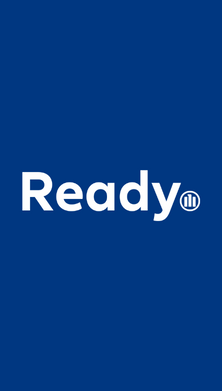A new ride-sharing experience for small aircraft has recently taken off, in partnership with Allianz Global Corporate & Specialty. Called “Wingly”, the service connects private pilots with passengers so that the high costs of private flight can be shared between them. Unlike Uber, private pilots do not use Wingly to make a living but to save money on their flights in order to fly more and pursue their passion The service so far covers flights in Europe (France, Germany and the UK).
This is how it works: Pilots of small planes add their services to the Wingly website indicating their flight details, destination and number of available seats. Passengers book seats accordingly to a desired destination or just for a sight-seeing trip with either a valid credit card or PayPal.
If passengers do not find a suitable flight, they can set a “flight alert” by adding the destination to which they want to travel and receive a daily email with updates. Most flights cost less than ₤200 and many are less than ₤100.
The program allows for pilots to keep mandatory flight hours current while also offsetting high costs of air travel with passengers. The pilots must remain strictly non-profit in order to be eligible to participate in the program (otherwise, they would be considered “commercial” pilots and regulations would be much stiffer). So far, there are 35,000 registered users (pilots and passengers) participating in the Wingly program.
“Wingly is quite innovative in the GA space,” says Gaëtan Bareille, General Aviation Underwriting Manager, AGCS. “It works within recent EU regulatory rules that were passed since Wingly pilots operate as ‘not-for-profits’, and it will be very interesting for us insurers to follow the growth of this new collaborative economy in airspace.” In the event of an accident, all passengers are covered by the passenger liability insurance used by the owner of the airplane.
To insure the program, Wingly turned to Allianz, working through the SAAM Verspieren Group, France’s third leading aviation insurance brokerage company. In excess to the primary regular insurance coverage attached to the aircraft, additional coverage is available which protects all passengers and third parties on the ground up to €1m, in case of insufficiency of the primary.
Bertrand Joab-Cornu, Wingly co-founder, says, “We have been building a community of trust within Wingly since the beginning. Thanks to this ambitious partnership with Allianz we are taking flight sharing to another level by offering broad coverage to our users.”
Wingly is committed to passenger and pilot safety and they take safety very seriously. The program uses a rating system to ensure transparency and to help build trust between its pilots and users.
In addition, it provides a set of “10 commandments” or “rules-of-the-road” etiquette reminders on its website (one each for pilots and passengers) that lay out the ground rules for a safe flight. The rules range from “you are the only decision maker on the aircraft and responsible for safety” to “welcome your passengers with a smile” for pilots; for passengers, they range from “you shall obey the pilot” to “you shall not light a cigarette onboard”.
While the US regulatory body, the Federal Aviation Administration (FAA), has not allowed ride-sharing in the US (a Wingly-type program called “Flytenow” was scuttled last summer), and the French body, Direction Générale de l’Aviation Civile (DGAC) allows the activity under strict conditions; and the European Aviation Safety Agency (EASA) supports the concept and is convinced that web-based platforms could offer improved GA safety.
“We entered the German market in February 2016 and the UK market in July 2016 to prove to the French government that there is nothing crazy or dangerous about an online platform, but that on the contrary there are a lot of safety benefits,” says pilot and entrepreneur Emeric de Waziers a co-founder of Wingly.
Ride-sharing technology is nothing new, and it will continue to expand, but its use in the civil air space is relatively innovative. “Ride-sharing, as a part of the overall collaborative economy, is quite popular in our society, with companies like Uber, Lyft, Bla Bla Car, Zipcar, Airbnb, and so on,” says Bareille, “and we are seeing more and more start-ups adapting this business model. Sure, some people are still reluctant, but this will change as more and more companies come aboard and are successful.”
The platform is simple to use. Pilots and passengers can register at www.wingly.io and then use the website to either offer a flight or find one. As a passenger, just choose the flight you want and confirm the booking, meet your pilot and fly (you can even purchase a gift card to surprise someone with a flight). As a pilot, acknowledge the booking and choose whether to accept it, meet your passengers and fly away into “the wild blue yonder.”
It really is that simple.
Facts & figures
35,000 – number of active users in England, France and Germany
4,000 – number of registered pilots available for booking on Wingly
₤110 – sample cost of a roundtrip day flight from London (Blackbushe) to the Isle of Wight
75% - amount pilots can cut the cost of an hour’s flight time by getting passengers through Wingly
₤160 – average cost of general aviation flight per hour (depending on the model)
2-6 – average number of seats in planes operated by Wingly pilots















